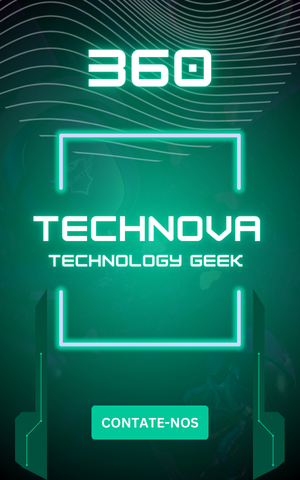The gaming world is on the edge of a big change, and cloud gaming is leading the way. It promises to make playing games easier, more convenient, and cheaper. Big names like Google, Nvidia, Microsoft, and Amazon are putting a lot of money into it. This shows that cloud gaming is here to change the game.
I’m really looking forward to how cloud gaming will keep improving. It means we won’t have to worry about our computer’s power or keeping up with new tech. We’ll get to play a huge variety of games right on our devices, without any hassle.
Key Takeaways
- Cloud gaming is changing the video game world by letting us play games without needing strong hardware.
- Big tech companies like Google, Nvidia, Microsoft, and Amazon are putting a lot of money into cloud gaming tech.
- Cloud gaming makes playing games easy, convenient, and affordable for everyone.
- The future of gaming is in the cloud, where we can stream games easily and access lots of games instantly.
- Cloud gaming is going to change how we play games, making it easier for gamers all over the world.
What is Cloud Gaming?
Cloud gaming is changing how we play video games. It lets gamers stream games from servers to their devices, without needing powerful hardware. The game runs on servers in data centers, and the video and audio stream to the player’s device live.
Definition and Explanation
Cloud gaming means running games on remote servers, not on the player’s device. These servers have top-notch hardware to handle game demands. This way, gamers can enjoy high-quality games on many devices, without needing expensive hardware.
How Cloud Gaming Works
Here’s how cloud gaming works in simple steps:
- The player picks a game from the cloud platform’s library.
- The game starts on a server in a data center.
- The player’s commands, like controller inputs, go to the server over the internet.
- The server processes the commands and creates the game’s visuals and sound.
- The visuals and sound are compressed and sent back to the player’s device.
- The device decodes and shows the game on the screen and plays the sound.
This whole process is fast, making gaming smooth. But, a good internet connection is key for a great experience. Fast and stable internet is needed to avoid lag and interruptions.
Cloud gaming uses special tech to adjust video and audio quality based on internet speed and device. This ensures the best gaming experience possible, no matter the network conditions.
As cloud gaming grows, better servers, streaming tech, and edge computing will improve it. This makes cloud gaming a strong option for playing games, alongside traditional methods.
The Rise of Cloud Gaming: How It’s Changing the Future of Video Games
Cloud gaming is changing the gaming world. It makes playing games easy and fun on many devices. You don’t need expensive gear or long downloads. This new tech is making games more fun for everyone.
Cloud gaming means you don’t need fancy consoles or PCs. It uses remote servers to stream games to your device. So, even old devices can play the latest games without expensive upgrades.
Cloud gaming is becoming popular fast. It lets players easily switch games without hassle. This is great for casual gamers and those who like trying new things.
Cloud gaming is not just a new way to play games; it’s a game-changer that will redefine the industry as we know it.
Cloud gaming is changing how games are made and sold. Developers are making games just for this platform. This is creating new and exciting games.
The future of gaming looks cloud-based. With better internet, more people can play. Cloud gaming also works well with new tech like VR and AR.
| Traditional Gaming | Cloud Gaming |
|---|---|
| Requires powerful hardware | Accessible on a wide range of devices |
| Limited to physical copies or digital downloads | Instant access to a vast library of games |
| High upfront costs for consoles or gaming PCs | Cost-effective, with subscription-based models |
| Storage limitations and installation times | No storage constraints or installation required |
Cloud gaming is here to stay. It makes games more accessible and fun. This new era of gaming is full of possibilities.
Benefits of Cloud Gaming
Cloud gaming has changed how we play video games. It offers many benefits that old-school gaming can’t match. As a gamer, I’ve seen how cloud gaming makes playing games easier, more convenient, and cheaper.
Accessibility and Convenience
Cloud gaming is super accessible and convenient. You can play games on any device, like phones, tablets, laptops, or smart TVs. You don’t need expensive gaming gear to play the latest games.
With cloud gaming, you can play anywhere, anytime, as long as you have internet. This freedom is amazing.
Cost-Effectiveness for Players
Cloud gaming is also great because it’s cheaper. Old-school gaming can cost a lot, with expensive consoles or PCs. But with cloud gaming, you just pay a monthly fee to play lots of games.
This makes gaming affordable for more people, no matter their budget.
“Cloud gaming has opened up a whole new world of possibilities for gamers, allowing us to play the games we love without breaking the bank.” – Sarah, avid cloud gamer
Instant Access to a Wide Library of Games
Cloud gaming lets you instantly play a huge variety of games. You don’t have to buy each game. Instead, you can try out lots of different titles with your subscription.
This means you can find new games, try different genres, and discover your next favorite game without spending extra money.
Some benefits of cloud gaming’s wide game library include:
- Exploring new genres and titles without additional costs
- Trying out games before committing to a purchase
- Playing a variety of games to suit your mood or preferences
- Discovering hidden gems and indie titles you might have otherwise missed
Cloud gaming has really changed how we enjoy video games. It makes it easy to dive into our favorite games. With its ease, convenience, cost-effectiveness, and wide game library, more and more gamers are choosing cloud gaming.
Challenges and Limitations of Cloud Gaming
Cloud gaming has many benefits, but it also has challenges and limitations. These issues mainly come from internet connectivity, latency, and data privacy and security concerns.

Internet Connectivity and Latency Issues
Cloud gaming heavily relies on a good internet connection. Players need a stable and fast internet to enjoy smooth gaming. Any internet problems can cause lag, stuttering, or disconnections.
Slow internet can also lower game quality and make games load longer. This is a big problem in areas with slow internet.
Data Privacy and Security Concerns
Cloud gaming also raises data privacy and security concerns. Personal data, like login details and payment info, is sent to remote servers. This makes players worry about data breaches and unauthorized access.
Players must trust cloud gaming services to keep their data safe. But, cloud gaming is a big target for hackers. Any security issues can hurt player trust.
There are also worries about who owns and controls player data. Players might not know how their data is used. This lack of control can make some players hesitant to use cloud gaming.
Major Players in the Cloud Gaming Industry
The cloud gaming industry is booming, with big tech companies like Google, Nvidia, Microsoft, and Amazon leading the way. They offer cloud gaming platforms that change how we play games. Now, gamers can stream top games on their devices without needing expensive hardware.
Google Stadia
Google Stadia launched in 2019 lets players stream games from Google’s servers. It works on many devices, including phones, tablets, and smart TVs. Stadia offers 4K resolution, 60 frames per second, and smooth gameplay without downloads or installs.
Nvidia GeForce Now
Nvidia GeForce Now lets players access their PC games on various devices. It uses Nvidia’s servers for high-quality gaming on less powerful hardware. GeForce Now supports games from Steam, Epic Games Store, and Ubisoft Connect.
Microsoft xCloud
Microsoft xCloud is now part of Xbox Game Pass Ultimate. It streams Xbox games to devices. Players can enjoy Xbox titles on phones, tablets, and PCs, with cross-platform play and saves.
Amazon Luna
Amazon Luna is the newest cloud gaming service. It offers games that stream instantly to compatible devices. Luna uses a channel-based model, with games chosen by players. It also works with Twitch for better social gaming.
| Cloud Gaming Service | Key Features | Supported Devices |
|---|---|---|
| Google Stadia | 4K resolution, 60 FPS, instant play | Web browsers, Chromecast, Android devices |
| Nvidia GeForce Now | Access to existing PC game library | Windows, macOS, Android, Shield TV |
| Microsoft xCloud | Xbox game streaming, cross-platform play | Android, iOS, web browsers |
| Amazon Luna | Channel-based subscriptions, Twitch integration | Fire TV, web browsers, iOS, Android |
These big players are making cloud gaming more popular. They’re investing in their services, promising top-notch gaming on many devices. Cloud gaming is changing the industry and attracting more gamers worldwide.
Impact on Traditional Gaming Consoles and PCs
Cloud gaming is becoming more popular, but it affects traditional gaming platforms. Consoles and PCs are still loved by many for their unique gaming experience. They offer a different feel than cloud gaming.
Cloud gaming might change how people buy gaming consoles. It makes buying expensive hardware less necessary. This could lead to fewer console sales as cloud gaming becomes more popular.
“I think cloud gaming will definitely have an impact on consoles, but it won’t replace them entirely. There’s still something special about having a physical device dedicated to gaming.” – Mark, longtime console gamer
Cloud gaming also affects gaming PCs. PC gamers often build their own rigs. But cloud gaming lets them play top games without needing to upgrade their PCs.

But, consoles and PCs won’t disappear soon. They have a dedicated fan base. Many gamers love owning their own hardware. Also, not everyone can access the fast internet needed for cloud gaming.
To understand cloud gaming’s impact, let’s look at some differences:
| Traditional Gaming | Cloud Gaming |
|---|---|
| Requires dedicated hardware (consoles, PCs) | Can be played on various devices (smartphones, tablets, smart TVs) |
| Players own physical copies of games | Games are streamed from remote servers |
| Hardware upgrades necessary for better performance | Performs consistently across devices |
| No reliance on internet connection | Requires stable, high-speed internet |
The future of gaming will blend traditional and cloud-based options. Cloud gaming brings new possibilities, but consoles and PCs remain popular. Players will have more choices than ever, allowing them to pick the best gaming experience for themselves.
Cloud Gaming’s Influence on Game Development
Cloud gaming is changing how we play and develop games. It offers new chances for indie creators and brings challenges for cloud adaptation.
New Opportunities for Indie Developers
Cloud gaming makes it easier for indie developers to reach players. They don’t need high-end hardware for their games. This means more people can play indie games, no matter their device.
Cloud platforms also showcase indie games alongside big titles. This boosts visibility and can lead to more sales and fans for indie developers.
Adapting to Cloud-Based Platforms
Cloud gaming brings new challenges for developers. They must make games work well on cloud platforms. This includes managing latency, streaming quality, and server needs.
Latency is key in cloud gaming. Even small delays can ruin the player experience. Developers must work to keep games smooth and responsive.
Developers also need to rethink game design for cloud gaming. Games with big worlds or complex physics might need changes to run well on cloud servers.
Despite these hurdles, cloud gaming is driving innovation. As more games are made for the cloud, we’ll see new genres and experiences. These will use cloud gaming’s unique features.
| Aspect | Traditional Gaming | Cloud Gaming |
|---|---|---|
| Hardware Requirements | Players need high-end devices | Accessible on various devices |
| Indie Developer Exposure | Limited visibility | Increased discoverability |
| Game Design Considerations | Optimized for local hardware | Adapted for cloud infrastructure |
As cloud gaming grows, developers must adapt quickly. By embracing cloud opportunities and solving challenges, they can create exciting games for players everywhere.
The Future of Cloud Gaming
The future of cloud gaming is very promising. Technology is advancing fast, opening up huge growth possibilities. Experts say cloud gaming will grow a lot, thanks to better streaming, faster internet, and more gamers joining in.
Potential for Growth and Expansion
5G networks are a big factor in cloud gaming’s growth. With 5G, gamers will get super-fast internet and less lag. This means they can play demanding games without any issues.
As 5G spreads, cloud gaming will reach more people. It will offer even more exciting gaming experiences.
Integration with Virtual and Augmented Reality
Cloud gaming is also getting ready to work with VR and AR. This will create incredibly realistic gaming worlds. Players could step into their favorite games and feel like they’re really there.
Cloud gaming is set to change the gaming world. It will let players enjoy top-notch games anywhere, anytime. As more people try it, we’ll see even more new things in cloud gaming.






